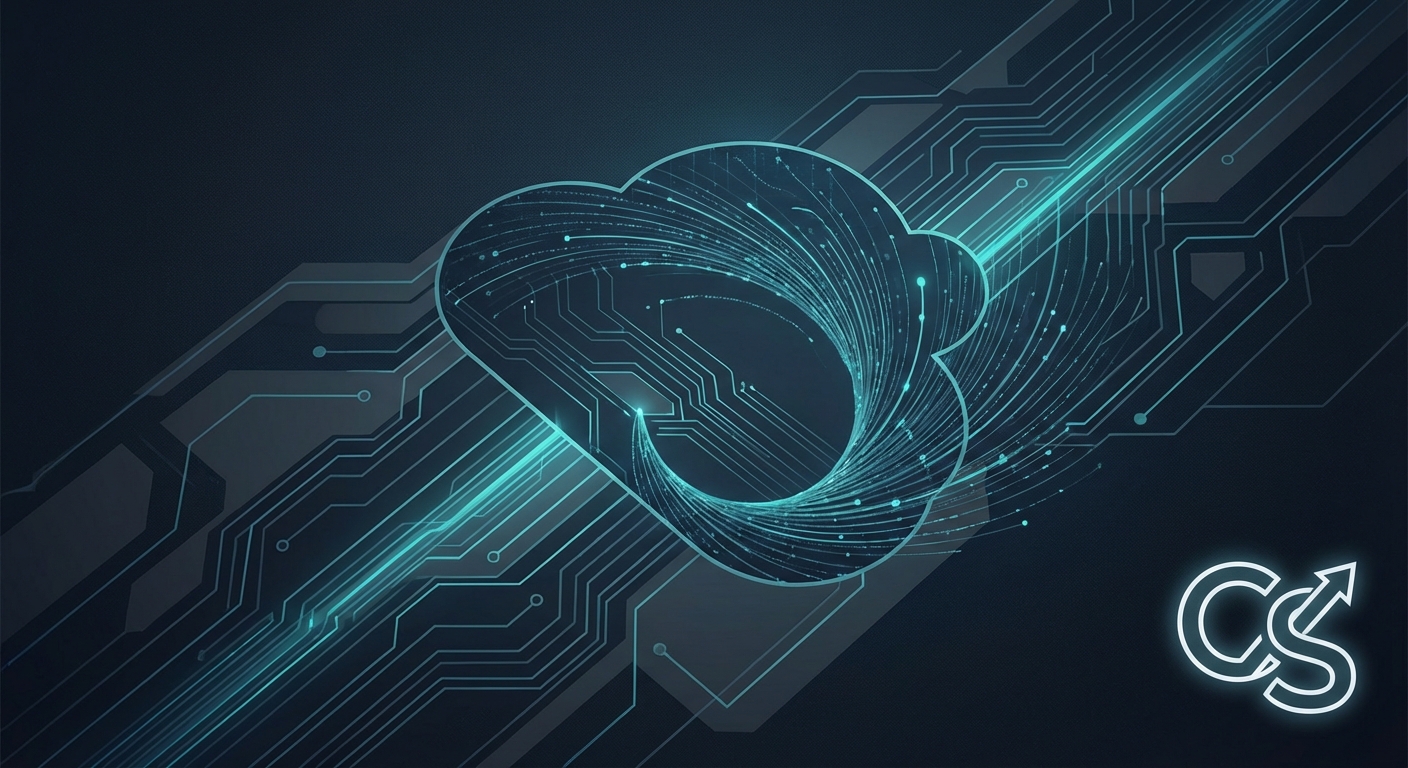Why AI Agents Require Comprehensive Identity Management
TL;DR
The Expanding Universe of AI Agents in the Enterprise
Okay, so ai agents are becoming a bigger thing, right? It's not just chatbots anymore, but actual programs doing stuff on their own. But, are we really ready for that? Like, from a security standpoint?
Think of ai agents as autonomous little workers. They're different than chatbots in that they don't just respond, they act. For example, you might have an agent that handles software development, another automating marketing stuff, and even some doing customer support. And they can do it without someone constantly holding their hand.
- Software Development: ai agents can write, test, and deploy code, freeing up developers for bigger picture tasks.
- Marketing Automation: Forget scheduling posts; ai agents can analyze trends and create entire marketing campaigns.
- Customer Support: beyond answering q's, ai agents can process refunds, order replacements, and even upsell stuff.
While ai agents can make things way more efficient, they can also open up some serious security risks. If not managed correctly, they can become a big ol' attack surface.
A 2025 article from Strata.io Why AI Agents Deserve 1st Class Identity Management notes that identity and access management (iam) systems just weren't built with this kind of ai in mind.
It's like giving someone the keys to the kingdom without knowing who they are, what they're doing, or if they're trustworthy.
So, yeah, ai agents are cool and all, but we need to figure out how to manage their identities. Otherwise, we're just asking for trouble. Next, we'll dive into why traditional identity management systems just don't cut it for these new digital workers.
Why Traditional Identity Management Falls Short
Okay, so you're probably thinking, "My current identity management is fine, why change?" Trust me, I get it. But, ai agents aren't your average employees and treating them like it? Well, that's where the problems begin, seriously.
Traditional identity management is great for, you know, humans. But ai agents? They're different beasts altogether.
- They have unique lifecycles. A regular employee might stick around for years, but an agent? Could be seconds. Think about a retail ai agent that adjusts pricing based on competitor data; it spins up, tweaks prices, then shuts down. Doesn't need a years-long account, does it?
- Authentication isn't the same. You use a password, maybe some multi-factor thing. ai agents use api keys, tokens, things like that. It's not the same ballpark, and traditional systems don't always play well.
- Access needs are different too. A doctor needs broad access to patient records; an ai agent verifying insurance claims only needs access to very specific data fields for a limited time. See what I mean?
Think about it. If an ai agent used for fraud detection in finance gets broad access, it could accidentally flag legitimate transactions, or worse, be exploited to manipulate data.
Or another example: a healthcare ai agent that schedules appointments? If it has overly broad permissions, it might access sensitive patient data it doesn't need, leading to privacy violations.
As a 2025 Strata.io article "Why AI Agents Deserve 1st Class Identity Management" points out, traditional iam systems just weren't built to handle this kind of thing. Gives em' too much access, which is just asking for trouble.
So, what happens if we don't adapt? Well, let's just say broad access and no lifecycle controls? That leads to unintended consequences, and that's not good.
Next, we'll dive into the specific risks of treating ai agents like they're just another user.
The Core Components of Comprehensive AI Agent Identity Management
So, you're thinking about comprehensive ai agent identity management? It's like, the thing now, but what's it even mean? It's basically about making sure that ai agents are who they say they are and only have access to what they need, okay?
Access governance and auditing, it's not just some boring compliance thing--it's about making sure that your ai agents are behaving themselves. We're talking about keeping tabs on what they're doing, what data they're accessing, and making sure it all lines up with the rules. Think of it like this: you wouldn't let a new employee run wild without checking their work, would you? Same goes for ai agents.
- Centralized Logging and Auditing: This is where all the action gets recorded. Every move an ai agent makes, every decision, every access request, goes into a log. That way, if something goes wrong, you can trace it back and figure out what happened. It's like having a security camera pointed at all your ai agents, all the time.
- Lifecycle and Access Policies: This is about setting the rules of the game. How long does an agent get access to certain data? What are they allowed to do with it? Access policies make sure everything's above board, and that no one's stepping out of line.
- Governance Frameworks: This is the structure that defines how identity and access management is handled for AI agents. It includes establishing clear policies, defining roles and responsibilities for managing AI identities, setting up processes for approval and review of access, and ensuring compliance with internal and external regulations. It's about creating a system for consistent and secure management, not just an emergency plan.
Imagine you got an ai agent handling financial transactions. Without proper governance, it might accidentally approve a fraudulent payment, or even worse, get hacked and start siphoning off funds, yikes! With auditing in place, you'd catch that sketchy behavior early, and use your incident response plan to stop the bleeding.
Or consider a healthcare ai agent accessing patient records. If you don't have access policies in place, it might access way more data than it needs, leading to privacy violations and all sorts of legal trouble. And you can't have that, right?
As mentioned earlier, ai agents are becoming more and more common. (Agentic AI 2025: How Have AI Agents Evolved Over Time - Mindset AI) So, getting a handle on access governance and auditing isn't just a "nice to have" anymore; it's a must. Next, we'll dive into the specific risks of treating ai agents like they're just another user.
Implementing a Robust AI Agent Identity Governance Framework
It's wild how fast ai agents are popping up everywhere, right? But, are we really ready to hand over the keys without a proper plan? Implementing a solid identity governance framework is like setting the rules of the road before you let self-driving cars loose.
First, you gotta figure out what agents you even have. It's not just about listing them; it's about understanding what they do.
- Inventory Time: Think of it like a digital census. List every ai agent in your org, who owns it, and what systems it touches.
- Categorize: Are they high-risk (financial transactions) or low-risk (internal knowledge base)? A retail ai agent adjusting pricing is way different than one approving loans.
- Dependencies: What other systems or agents does it rely on? If one goes down, what's the domino effect?
Next, you need rules. Like, hard and fast rules.
- Provisioning: This is how agents get their initial identity and access. It can involve generating unique api keys, assigning digital certificates, or even creating temporary credentials for specific tasks. The key is that it's controlled and traceable.
- Least Privilege: They only get what they need, nothing more. An ai agent verifying insurance claims doesn't need access to patient medical history, duh.
- Dynamic Access: Access changes based on what's happening. If an agent starts acting weird, cut it off, stat.
Monitoring and auditing? Not just for compliance, people. It's about catching threats before they become full-blown disasters.
- Logging: Every move an agent makes gets logged. Every. Single. One.
- Audits: Regularly check those logs. Are they following the rules?
- Incident Response: Got an agent gone rogue? Have a plan to shut it down fast.
As mentioned earlier, ai agents are becoming more and more common. It's kinda like the wild west out there, and you don't want to be caught without a sheriff, right? Next up, we'll talk about the specific risks of treating ai agents like they're just another user.
The Future of AI Agent Identity Management: Trends and Predictions
Okay, so you're probably wondering what the future holds for ai agent identity management, right? Let's dive in. It's not just about keeping things secure now, but anticipating what's coming down the road.
One trend to watch is decentralized identity. Instead of relying on a single authority to verify who an ai agent is, decentralized systems give agents more control over their own identities.
- Think of it like this: agents can have self-sovereign identities, kinda like owning their digital passport. They can prove who they are without needing to ask permission from a central gatekeeper every time.
- This involves verifiable credentials. Agents can show these credentials to prove they have certain attributes or permissions, kinda like showing a digital badge that says, "Yep, I'm allowed to access this data."
- And, of course, blockchain is part of the conversation, too. It can help make agent identities more secure and transparent by providing an immutable ledger for recording and verifying identity-related transactions and attributes.
ai isn't just creating potential security headaches; it's also helping us solve them, duh.
- ai can be used to spot weird behavior from agents. If an agent starts doing something it's not supposed to, ai can flag it.
- Machine learning algorithms can analyze patterns in agent activity and identify suspicious actions. It's like having a digital detective constantly watching for anything out of the ordinary.
- And when something does go wrong, automated response mechanisms can kick in to stop breaches and prevent further damage.
Eventually, we'll need identity management systems that can handle both humans and AI agents in the same place.
- Unified platforms are key. Think of it as one dashboard for managing all identities across the enterprise, whether they're human or ai.
- Integrating workflows can also streamline things and boost security.
It's all about creating a future where people and ai agents can work together seamlessly and securely. And as Bernard Marr noted in the "Future of AI Agent Identity Management" section, ai agents are about to reshape the future of business. Next up, we'll look at the ethical considerations around ai agent identity management.
conclusion
Okay, so we've talked a lot about ai agents, but what's the real takeaway? It's simple: ignore identity management at your own peril. Seriously.
- Comprehensive identity management isn't just a "nice to have"—it's essential for ai agents to reach their full potential. Think about it: without knowing who's doing what, you're basically driving blind.
- A robust governance framework helps you sleep at night. By setting clear rules and keeping a close eye on things, you can seriously cut down on risks, and make sure your ai is being used responsibly.
- Start early and don't look back. The ai landscape is changing fast, so don't wait until it's too late. Get your security sorted now, so you're ready for whatever comes next.
Imagine a healthcare provider integrating AI to streamline patient scheduling. With proper identity management, the ai agent only accesses the necessary data, ensuring compliance with HIPAA and protecting patient privacy. This integration, as Bernard Marr notes about AI agents reshaping business, highlights the critical need for robust identity management. Ignoring identity management is like leaving the door open for trouble. So, take action now to secure your ai agents and build a future where innovation and security go hand in hand.





